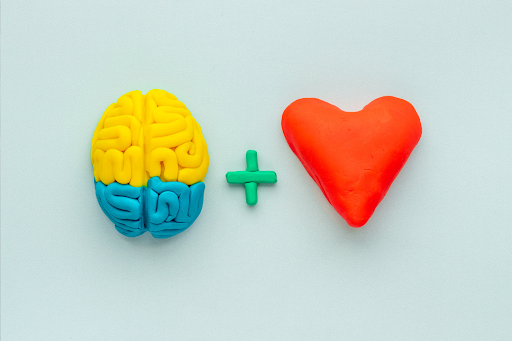Growing up with a parent who struggles with addiction is tough, and unfortunately, it’s something many kids experience. A study by the Substance Abuse and Mental Health Services Administration (SAMHSA) found that in the US, about 1 in 10 children (7.5 million) lived in households with at least one parent who had a past year alcohol use disorder and about 1 in 35 children (2.1 million) lived in households with at least one parent who had a past year illicit drug use disorder.
Recognizing the lasting impact on their mental health, relationships, and self-esteem is key. When we address the struggles that come with growing up in such an environment, we can help kids feel more supported and provide them with the tools they need to overcome the challenges they’re facing. Wellbrook Recovery offers resources and guidance to help families navigate these difficulties and support both parents and children on the path to healing.
Table of Contents
The Effects of Addiction on Children and Families
Addiction isn’t just about making bad choices; it’s actually a chronic medical condition called substance use disorder (SUD). This means a person’s brain and body become dependent on a substance, making it really hard for them to stop using, even when it causes problems in their life. It’s not as simple as just deciding to quit. Just like diabetes or heart disease, addiction requires ongoing treatment and support to manage and overcome.
Addiction doesn’t happen in isolation – it affects not only the person facing it, but also everyone around them, especially their children. Since children might not always show the emotional toll it takes on them, or even fully understand it themselves it can be easy to overlook. Understanding the effects of addiction on children, and what these youngsters are going through, as well as the lasting impact it can have on their mental health, relationships, and self-esteem is key to providing the right help.
Can Addicts Be Good Parents?
Many parents struggling with addiction deeply love their children and want to be good parents, but handling an alcohol or drug addiction while parenting can interfere with vital responsibilities. Their addiction can create challenges that affect their ability to provide stability, emotional support, and consistency.
Kids in these situations often face a lot of instability and unpredictability at home. One day, things might seem normal, and the next, everything could feel chaotic. A parent dealing with addiction might forget important responsibilities, have sudden mood swings, or struggle to provide emotional and financial support.
This kind of environment can be really tough on children. They might feel anxious, embarrassed, or even responsible for their parent’s behavior. Some kids have to grow up too quickly, taking on adult responsibilities that would normally fall to the parent. Others might struggle with school, friendships, or their own emotions because they never know what to expect from day to day – will their parent be there for them? Will they be sober? This unpredictability can make life feel chaotic and confusing, leaving them feeling uncertain and unsafe.
The Emotional and Psychological Character Traits Found in Children of Addicts

Growing up with drug addicted parents can take a serious toll on a child’s emotions and mental well-being. The instability, unpredictability, and emotional ups and downs can leave deep, long-term effects. Here are five common traits:
1. Trust Issues and Fear of Abandonment
When home doesn’t feel safe or predictable, kids often grow up with trust issues. It can be hard for them to believe that others will stick around or keep their promises. As a result of being raised around addiction, they might push people away, or cling too tightly out of fear of being abandoned.
2. Isolation and Fear of Authority
Some children of addicted parents learn to stay quiet and invisible, thinking that if they don’t cause trouble, they’ll avoid conflict. This can lead to a fear of authority figures — teachers, bosses, or even friends’ parents — because they associate authority with unpredictability or punishment.
Other children learn to bottle up their emotions, which can make it harder for them to form healthy relationships later in life.
3. Approval-Seeking and Loss of Identity
Many kids in an environment of addiction become people-pleasers, always trying to make others happy because they crave the validation they didn’t get at home. They might struggle to set boundaries, say no, or even know what they want, since they’ve spent so much time trying to meet others’ expectations. Other children learn to bottle up their emotions, which can make it harder for them to form healthy relationships later in life.
4. Impulsivity and Overreaction
A life of addiction is full of chaos and when life is full of instability, some children develop impulsive tendencies where they act first and think later. This could show up as risky behavior, trouble with emotions, or difficulty handling change. Since they’re used to dealing with stressful situations, even small changes might cause big reactions, making it seem like they overreact to minor things.
5. Judgmental Attitudes and Low Self-Esteem
Some kids blame themselves for their parent’s struggles, thinking, If I were better, maybe they wouldn’t have to turn to substances. This can cause them to grow up with a strong inner critic, constantly putting themselves down and believing they’re not good enough.
At the same time, they might also be critical of others, feeling frustrated when people don’t act the way they expect. This behavior often comes from having to be hyper-alert to others’ moods growing up in order to avoid conflict or harm.
All of these factors mean that children who grow up with addicted parents are at an increased risk of developing anxiety and depression later in life.
Building Resilience in Affected Children

Being the child of drug addicted parents, can make life feel unpredictable and out of control. But even in tough situations, children can develop resilience — the ability to bounce back and find strength despite challenges. It’s not about ignoring the pain or pretending everything is okay; it’s about learning ways to cope, build support systems, and find a level of stability in the chaos.
These are five ways you can help support children of addicted parents:
1. Resources and Support for Children of Addicts
There are many resources available to support children of addicted parents. One option is support groups specifically for kids in this situation. These groups are helpful because they allow children to connect with others who understand what they’re going through. Talking to people who understand firsthand what they’re dealing with can make a huge difference. Some groups are in person, but many can be found online, too, so there’s flexibility in how a child can access support.
Therapy is another great option and it can take place one-on-one or in a group setting, depending on what feels most comfortable. The goal is to create a safe space where kids can share their experiences without feeling judged.
Teachers, school counselors, and family members can also be valuable sources of support. Encouraging children to speak up and seek help can make a significant difference in their healing journey.
2. Encouraging Open Communication About the Addiction at Home
Talking about feelings can be hard, especially when home life feels unstable. Some kids might be afraid to express themselves because they’re worried about getting into trouble. Others may be afraid of saying negative things about their drug addicted parent, or because they’ve learned that their feelings don’t seem to matter. But bottling everything up only makes it harder in the long run.
Finding a safe person, whether it’s a trusted family member, teacher, friend, or counselor, can make a huge difference. They can offer a listening ear without judgment, helping kids process what they’re going through. The important thing is knowing that their feelings are valid, and they deserve to be heard.
3. Encouraging Children of Addicts to Foster Stable Relationships
Addiction often makes home life unpredictable, so having consistent, supportive people outside of that environment is really important. Whether it’s a grandparent, teacher, coach, or mentor, having someone who provides stability can help kids feel less alone.
These relationships help remind children of addicts that they are valued and loved, even when the situation at home feels chaotic.
4. Developing Coping Mechanisms
Life with an addicted parent can be stressful and overwhelming, so it’s important to find ways to release that stress in a healthy way. Some strategies include:
- Physical activity (running, dancing, playing sports)
- Creative outlets (drawing, writing, music)
- Mindfulness (deep breathing, meditation, yoga)
- Talking to someone (friend, therapist, support group)
The key is to find something that helps process emotions instead of numbing them or pushing them aside. Finding healthy ways to cope with difficult challenges is a skill that can help a person throughout their lifetime.
5. Fostering a Sense of Normalcy Amidst the Chaos of Addiction
For a child of addict parents, life can feel particularly unpredictable. Having routines and structure can make a big difference. While we can’t control how others act, we can control our own choices, and while other people’s lives may be disorderly, we can cultivate order in ours. Even small things, like waking up at the same time, doing homework in a quiet space, or eating meals at a regular time, can help create a sense of stability.
Getting involved in activities outside the home, like clubs, sports, or hobbies, can also provide a sense of belonging and normalcy. These activities allow children to feel like they’re part of something stable and positive, helping them feel grounded, even when other aspects of life seem uncertain.
Empowering Children of Addicts
Growing up as children of alcohol or drug addicted parents is hard — there’s no way around that. It comes with a lot of confusion, pain, and challenges that children shouldn’t have to deal with. But that doesn’t mean it has to define who they are or what their future holds. Even in tough situations, kids can grow into strong, independent, and compassionate people.
The most important thing to remember is that help is out there. Talking about feelings, finding healthy ways to cope, and surrounding themselves with people who genuinely care can make a huge difference. No one has to go through it alone.
If you’re feeling the weight of a parent’s addiction, or seeing its impacts on loved ones, you’re not alone. Wellbrook Recovery is here to help you regain control of your life. Reach out to us, and let’s discuss how we can support you in moving forward and improving your situation.









